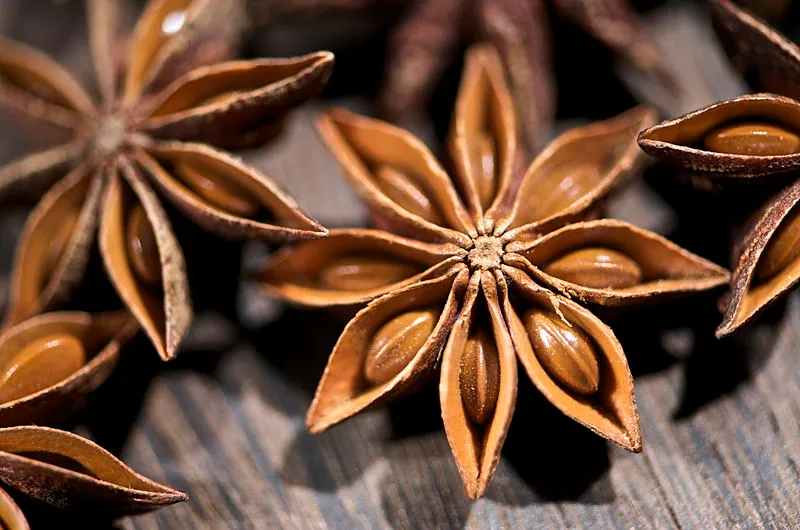What is Anise?
Anise (Pimpinella anisum) is a flowering plant native to the eastern Mediterranean region and Southwest Asia. It belongs to the Apiaceae family and is related to other plants like fennel, caraway, and cumin. It is an herbaceous annual plant that can grow up to 60 cm tall. And has feathery leaves and small white flowers arranged in umbrella-like clusters.

People widely cultivate anise for its seeds, which they use as a flavoring agent in cooking, medicine, and perfumery. The seeds have an oval shape, are brownish-gray in color, and possess a distinctive sweet, licorice-like flavor and aroma. People commonly use anise seeds in baked goods, confectionery, and beverages like anise liqueurs, teas, and coffee.
Benefits
Scientific research supports the belief that anise seeds have several potential health benefits. Here are some of the potential benefits of anise seeds:
- Digestive health: They are known for their digestive properties and have been traditionally used to relieve digestive ailments such as bloating, gas, and indigestion. Studies suggest that anise seeds may help improve digestion by promoting the production of digestive enzymes and reducing inflammation in the gut.
- People commonly use to treat coughs and respiratory infections, highlighting their potential benefits for respiratory health. They contain compounds that have expectorant and bronchodilator properties, which can help loosen phlegm and open up airways.
- They have traditionally been used to relieve menstrual cramps and regulate menstrual cycles, indicating their potential benefits for menstrual health. They contain compounds that have estrogenic properties, which can help balance hormone levels and reduce menstrual pain.
- They contain several compounds, including anethole, which scientific research has shown to have anti-inflammatory and antioxidant properties, indicating their potential benefits in this regard. These properties may help protect against chronic diseases such as cancer, diabetes, and heart disease.
- Antimicrobial properties: Have antimicrobial properties and have been traditionally used to treat infections caused by bacteria, fungi, and viruses. Studies suggest that anise seeds may be effective against certain strains of bacteria and fungi.
Side effects
One should note that while anise seeds potentially have several health benefits, researchers need to conduct more studies to completely comprehend their effects on human health. People should consume anise seeds in moderation since they may cause allergic reactions in some individuals, and excessive consumption may have negative effects on health.
- Allergic reactions: Some people may be allergic to anise, and may experience symptoms such as itching, rash, or difficulty breathing.
- Gastrointestinal issues: Anise can irritate the digestive system and may cause nausea, vomiting, or diarrhea in some people.
- Hormonal effects: They contains compounds that mimic the effects of estrogen in the body, and may therefore affect hormone levels in some people. This could potentially lead to complications for individuals with certain hormone-related conditions.
- Blood sugar effects: Anise may lower blood sugar levels, which could be a concern for people with diabetes or hypoglycemia.
- Drug interactions: Anise may interact with certain medications, such as birth control pills or blood thinners, and may increase or decrease their effectiveness.